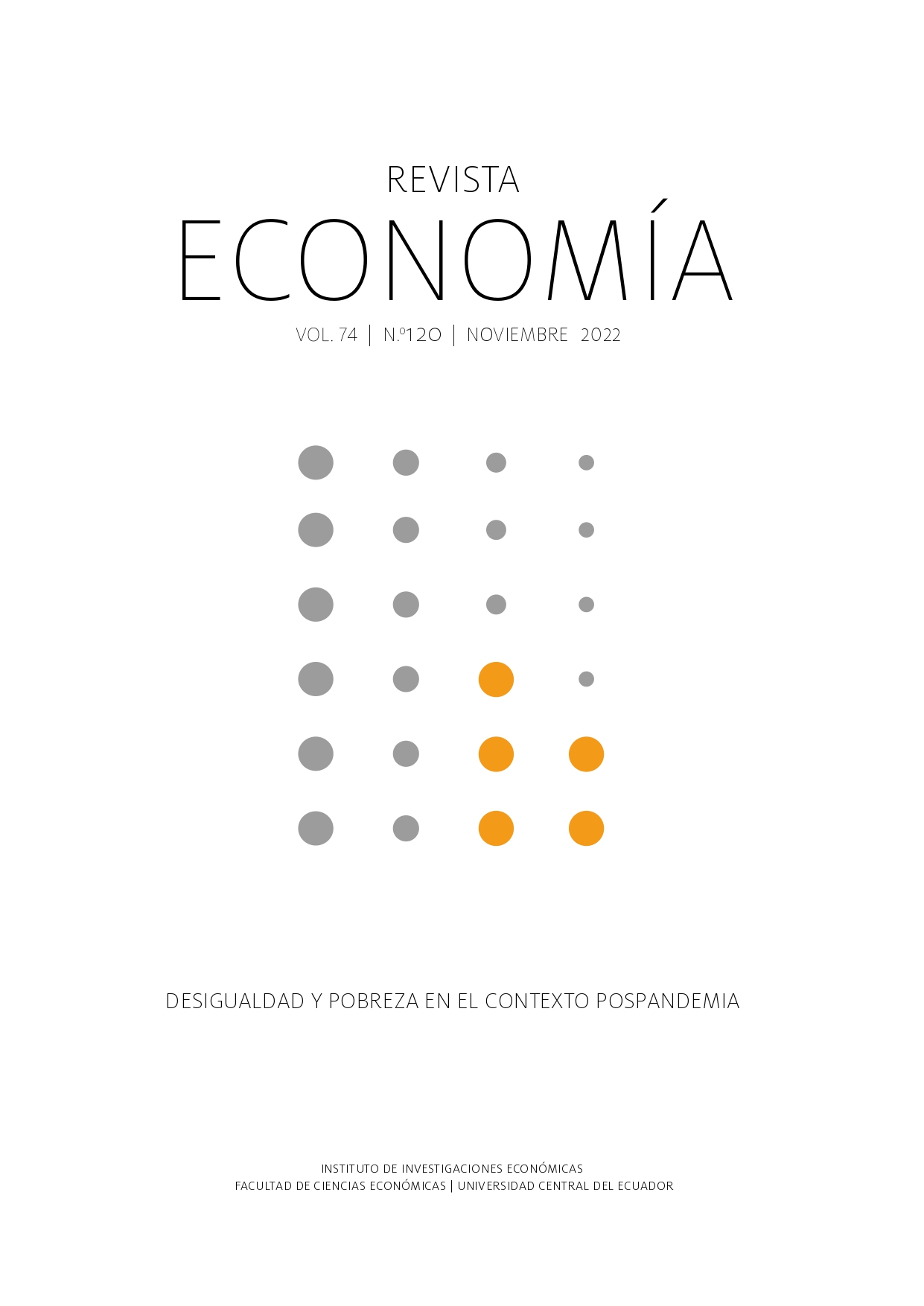Pérdida de ingresos futuros de los estudiantes ecuatorianos del nivel de educación básico por el cierre de escuelas
Main Article Content
Abstract
The purpose of this research is to evaluate the impact of the COVID-19 pandemic on education, determining its effect on the future income of children who attended basic education during the first year of the pandemic. After analyzing the main authors and postulates of the Human Capital theory, it was determined that schooling is one of the most influential variables for wages, and using the equation proposed by Mincer, the value of a year of schooling in the country prior to the pandemic was calculated, and the loss of future income was monetized, considering the inequality in access to basic resources for remote education
Downloads
Article Details

This work is licensed under a Creative Commons Attribution-NonCommercial 4.0 International License.
The authors who publish in this journal accept the following conditions:
- The authors retain the copyright and assign to the Economics Magazine the right of the first publication, with the work registered under Creative Commons Attribution-NonCommercial 4.0, which enables third parties to redistribute, commercial or non-commercial, of what has been published as long as the article circulates completely and without changes.
- Authors can make other independent and additional contractual agreements for the distribution of the article published in this journal (for example, add it to an institutional repository or publish it in a book) as long as they clearly and clearly specify that the article was published for the first time. once in Revista Economía. In case of reproduction, a note similar to the one presented below must be included: This text was originally published in the Revista Economía No.…, volume…, number of pages, year of publication.
- Authors are suggested to publish their work on the internet (for example, on institutional or personal pages) of the final version published by Revista Economía since this can lead to greater and faster dissemination of the published article.
References
Alderman, H., Hodditnott, J., & Kinsey, B. (2006). Long-term consequences of early childhood malnutrition. Oxford Economic Papers, 450-474.
Andrabi, T., Daniels, B., & Das, J. (2020). Human Capital Accumulation and Disasters: Evidence from the Pakistan Earthquake of 2005. RISE Working Paper Series. doi:https://doi.org/10.35489/BSG-RISE-WP_2020/039
Banco Mundial. (2020, Junio). Simulación de los posibles impactos de los cierres de escuelas de COVID-19 en los resultados de la escolarización y el aprendizaje. Policy Research Working Paper(9284). Retrieved from https://www.worldbank.org/en/research/brief/world-bank-policy-research-working-papers
Banco Mundial. (2021). Actuemos ya para proteger el Capital Humano de nuestros niños. Washington.
Becker, G. (1964). Human Capital. New York: Columbia University Press for the National Bureau of Economic Research.
Cooper, H., Nye, B., Charlton, K., Lindsay, J., & Greathouse, S. (1996). The Effects of Summer Vacation on Achievement Test Scores: A Narrative and Meta-Analytic Review. Review of Educational Reseah, 66(3), 227-268. doi:10.3102/00346543066003227
Hoddinott, J., & Kinsey, B. (2001). Child growth in the time of drought. Oxford Bulletin of Economics and Statistics, 63(4), 409-436.
Hodges, C., Moore, S., Lockee, B., Trust, T., & Bond, A. (2020, 03 27). The Difference Between Emergency Remote Teaching and Online Learning. Retrieved from EDUCASE REVIEW: https://er.educause.edu/articles/2020/3/the-difference-between-emergency-remote-teaching-and-online-learning
Karl, A., Pitcock, S., & Boulay, M. C. (2016). The Summer Slide: What We Know and Can Do About Summer Learning Loss. New York: Teachers College Press.
Laroche, M., Marcel, M., & Ruggeri, G. (1999). On the Concept and Dimensions of Human Capital in a Knowledge-based Economy Context. Canadian Public Policy, 25(1), 87-100.
Maccini, S., & Yang, D. (2009). Under the weather: Health, schooling, and economic consequences of early-life rainfall. American Economic Review, 3.
Mincer, J. (1974). Schooling, experience and earnings. Cambridge: National Bureau of Economic Research.
Nguyet , P. M. (2016). El impacto de los desastres naturales en la educación de los niños. Evidencia comparativa de Etiopía, India, Perú y Vietnam. Crítica Emancipación. Revista Latinoamericana de Ciencias Sociales, 8(15).
Schultz, T. (1961). Investment in Human Capital. The American Economic Review, 51(1), 1-17.
Schultz, T. (1972). Valor económico de la educación. Uteha.
Thurow, L. (1978). Inversión en Capital Humano. México: Trillas.
UNESCO. (2020). La educación en tiempos de la pandemia de COVID-19. Santiago. Retrieved from https://repositorio.cepal.org/bitstream/handle/11362/45904/1/S2000510_es.pdf

